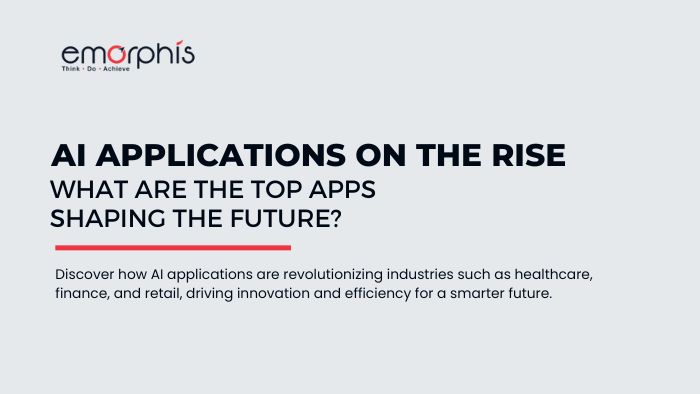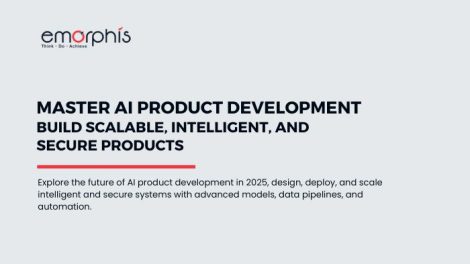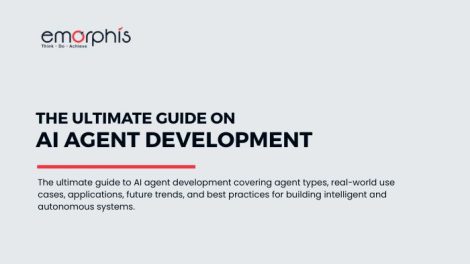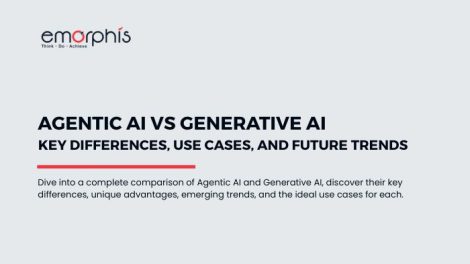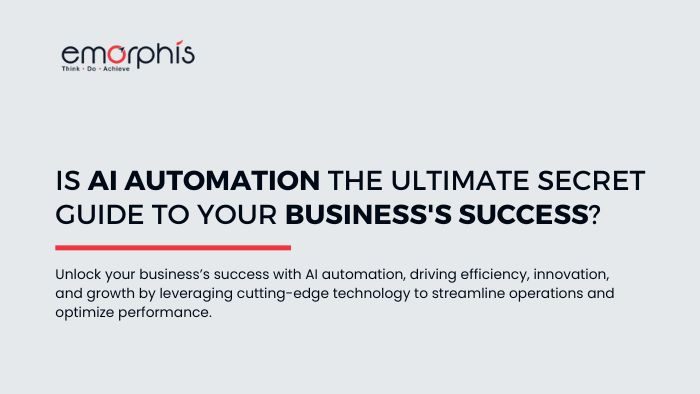Overview
Artificial Intelligence (AI) is increasingly becoming a cornerstone of innovation across multiple industries with various AI applications. From healthcare to finance, AI is not just a buzzword but a transformative force reshaping business operations and consumer interactions.

This article explores AI’s role in various industries, its trending applications, future impact, and market statistics.
Healthcare

What is AI Doing in Healthcare?
In healthcare, AI is revolutionizing patient care and medical research. It’s improving diagnostic accuracy through advanced imaging techniques, assisting in developing personalized treatment plans and automating routine tasks such as appointment scheduling and patient triage. AI-powered tools analyze vast amounts of medical data to identify patterns and predict patient outcomes, thus enabling proactive and personalized care.
Trending AI Applications in Healthcare
- Diagnostic Imaging: AI algorithms enhance the interpretation of medical images such as X-rays, MRIs, and CT scans, providing quicker and more accurate diagnoses.
- Predictive Analytics: Machine learning models predict patient risks and outcomes, helping in early intervention and personalized treatment strategies.
- Virtual Health Assistants: AI-driven chatbots and virtual assistants offer round-the-clock support, manage appointments, and provide health information.
Click the link to check more details on apps transforming with AI in Healthcare.
How AI Will Reshape Healthcare in the Future
AI will likely continue to enhance diagnostic and treatment capabilities, leading to more personalized and efficient healthcare. Integrating AI with genomic data and personalized medicine will enable targeted therapies and preventive measures. Moreover, advancements in AI will facilitate the development of smart medical devices and improve patient monitoring through wearable technologies.
Market Stats and Future Outlook
The global AI in healthcare market is expected to reach approximately $30 billion by 2025, growing at a CAGR of 40% from 2020. This growth is driven by the increasing adoption of AI technologies and the rising demand for personalized healthcare solutions.
Financial Services

What is AI Doing in Financial Services?
In the financial sector, AI is optimizing operations and enhancing decision-making processes. AI applications are used for fraud detection, risk management, and customer service automation. Algorithms analyze financial transactions and market trends to provide investment advice, predict market movements, and manage portfolios efficiently.
Trending AI Applications in Financial Services
- Fraud Detection: AI systems identify unusual patterns in transaction data to prevent fraudulent activities.
- Algorithmic Trading: Machine learning models analyze market trends and execute trades with precision, optimizing investment strategies.
- Personalized Financial Advice: In finance, AI-powered robo-advisors provide personalized investment recommendations based on individual financial goals. The continued evolution of AI in trading algorithms will lead to more accurate market predictions and automated trading strategies.
How AI Will Reshape Financial Services in the Future
AI will further enhance financial services by enabling more sophisticated risk management techniques and personalized financial planning. The continued evolution of AI in trading algorithms will lead to more accurate market predictions and automated trading strategies. Additionally, AI will play a crucial role in regulatory compliance and customer experience management.
Click the link to check details on Fintech App Development.
Market Stats and Future Outlook
The AI in financial services market is projected to grow from $7 billion in 2021 to $33 billion by 2026, reflecting a CAGR of 36%. This growth is fueled by increased demand for AI-driven solutions in fraud prevention and customer engagement.
Retail

What is AI Doing in Retail?
In retail, AI is enhancing customer experiences and optimizing supply chain operations. Retailers use AI to analyze consumer behavior, manage inventory, and personalize shopping experiences. AI-driven tools also enable dynamic pricing and targeted marketing strategies.
Trending AI Applications in Retail
- Recommendation Engines: AI algorithms analyze customer data to suggest products based on individual preferences and purchase history.
- Chatbots: AI-powered chatbots provide real-time customer support, handle inquiries, and assist in the purchasing process.
- Demand Forecasting: AI models predict product demand, helping retailers optimize inventory levels and reduce stockouts.
How AI Will Reshape Retail in the Future
AI will continue to drive innovation in retail by enhancing personalization and automating operational processes. Future developments may include more advanced virtual fitting rooms, AI-driven store layouts, and seamless integration of online and offline shopping experiences.
Click the link to check details on Retail Software development.
Market Stats and Future Outlook
The AI in retail market is projected to grow from $5 billion in 2022 to $20 billion by 2027, with a CAGR of 30%. This growth is attributed to increasing investments in AI technologies and the rising demand for personalized retail experiences.
Transportation

What is AI Doing in Transportation?
AI is revolutionizing the transportation industry through advancements in autonomous vehicles, traffic management, and route optimization. AI technologies are improving safety, efficiency, and sustainability in transportation systems.
Trending AI Applications in Transportation
- Autonomous Vehicles: AI algorithms enable self-driving cars to navigate roads, detect obstacles, and make real-time decisions in autonomous vehicles.
- Smart Traffic Management: AI systems optimize traffic flow by analyzing data from sensors and adjusting traffic signals to reduce congestion.
- Predictive Maintenance: AI predicts vehicle maintenance needs, reducing downtime and improving operational efficiency.
Click the link to explore details on Hospitality Software development.
How AI Will Reshape Transportation in the Future
AI will drive significant changes in transportation, leading to widespread adoption of autonomous vehicles and smart infrastructure. Future advancements may include more integrated smart city solutions and improved public transportation systems using AI for scheduling and route planning.
Market Stats and Future Outlook
The AI in transportation market is projected to grow from $2 billion in 2021 to $10 billion by 2026, representing a CAGR of 37%. The rise in autonomous vehicle adoption and smart traffic solutions is a key factor in this growth.
Manufacturing

What is AI Doing in Manufacturing?
AI is revolutionizing manufacturing by enhancing automation, optimizing production processes, and improving quality control. Advanced algorithms analyze data from manufacturing systems to predict equipment failures, optimize supply chains, and improve production efficiency.
Trending AI Applications in Manufacturing
- Predictive Maintenance: AI models predict equipment malfunctions before they occur, reducing downtime and maintenance costs.
- Quality Control: Machine vision systems powered by AI inspect products for defects with high precision.
- Supply Chain Optimization: AI algorithms forecast demand, manage inventory, and streamline logistics to reduce costs and improve delivery times.
How AI Will Reshape Manufacturing in the Future
AI will drive further automation and smart manufacturing practices, leading to highly efficient, flexible, and responsive production systems. Advanced robotics and AI-driven analytics will enhance customization and support just-in-time manufacturing processes.
Click the link to find details on Industrial Software Development.
Market Stats and Future Outlook
The AI in manufacturing market is expected to grow from $7 billion in 2022 to $30 billion by 2027, with a CAGR of 34%. Increased adoption of AI-driven automation and predictive maintenance solutions is fueling this growth.
Agriculture

What is AI Doing in Agriculture?
In agriculture, AI is transforming the industry by improving crop management, optimizing resource usage, and enhancing yield predictions. AI technologies analyze data from sensors, satellites, and drones to provide insights and recommendations for farmers.
Trending AI Applications in Agriculture
- Precision Farming: AI systems analyze soil conditions, weather patterns, and crop health to optimize planting and fertilization.
- Crop Monitoring: Drones equipped with AI analyze crop conditions and detect pests or diseases early.
- Automated Machinery: AI-powered tractors and harvesters perform tasks like planting, weeding, and harvesting with minimal human intervention.
How AI Will Reshape Agriculture in the Future
AI will enable more precise and sustainable farming practices, reducing resource waste and increasing crop yields. Future advancements may include fully autonomous farming equipment and AI-driven genetic modifications for crop improvement.
Click the link to explore details on Smart Farming.
Market Stats and Future Outlook
The AI in agriculture market is projected to grow from $2 billion in 2022 to $12 billion by 2027, reflecting a CAGR of 43%. The drive towards smart farming and efficient resource management is a key factor in this expansion.
Energy

What is AI Doing in Energy?
AI is enhancing the energy sector by optimizing energy production, improving grid management, and enabling predictive maintenance for equipment. AI technologies help manage and distribute energy more efficiently and integrate renewable energy sources.
Trending AI Applications in Energy
- Grid Management: AI algorithms analyze data to balance supply and demand, improving the stability and efficiency of energy grids.
- Predictive Maintenance: AI predicts equipment failures and maintenance needs in power plants and energy infrastructure.
- Energy Efficiency: AI systems optimize energy consumption in buildings and industrial processes, reducing costs and environmental impact.
How AI Will Reshape Energy in the Future
AI will facilitate the transition to smart grids and renewable energy sources by enabling more efficient energy management and storage solutions. Future developments may include AI-driven advancements in energy forecasting and automated grid responses.
Click the link to explore Software Consulting Services for the Energy sector.
Market Stats and Future Outlook
The AI in the energy market is anticipated to grow from $3 billion in 2022 to $20 billion by 2027, with a CAGR of 45%. The shift towards renewable energy and smart grid technologies is driving this growth.
Education

What is AI Doing in Education?
AI is revolutionizing education by customizing learning experiences, streamlining administrative processes, and offering valuable insights into student performance. AI-driven tools support educators and students by offering tailored learning resources and assessments.
Trending AI Applications in Education
- Personalized Learning: AI systems create customized learning paths and resources based on individual student needs and progress.
- Automated Grading: AI tools automate the grading of assignments and exams, freeing up educators to focus on teaching.
- Virtual Tutors: AI-powered virtual tutors offer supplementary support and resources to students beyond regular classroom hours.
How AI Will Reshape Education in the Future
AI will continue to enhance personalized learning experiences, making education more accessible and effective. Future advancements may feature more sophisticated virtual classrooms and AI tools for early intervention in learning difficulties.
Click the link to explore details on Backend Development Services and Frontend Development Services for the Education sector.
Market Stats and Future Outlook
The AI in education market is projected to grow from $2 billion in 2022 to $15 billion by 2027, with a CAGR of 41%. The increasing demand for personalized learning solutions and automation in education is driving this growth.
Real Estate

What is AI Doing in Real Estate?
AI is transforming real estate by optimizing property management, enhancing property valuation, and improving customer interactions. AI technologies analyze market trends and property data to provide valuable insights for buyers, sellers, and investors.
Trending AI Applications in Real Estate
- Property Valuation: AI algorithms assess property values based on various factors, including market trends and property features.
- Virtual Tours: AI-powered virtual reality (VR) provides immersive property tours, enhancing the buying and renting experience.
- Predictive Analytics: AI predicts market trends and investment opportunities, helping investors make informed decisions.
How AI Will Reshape Real Estate in the Future
AI will further revolutionize real estate by enhancing property management through smart building technologies and improving investment strategies with advanced predictive analytics. Future developments may include more personalized property recommendations and AI-driven market insights.
Explore details on Mobile App Development services for Real Estate applications.
Market Stats and Future Outlook
The AI in real estate market is expected to grow from $1 billion in 2022 to $8 billion by 2027, with a CAGR of 45%. The rise in AI-driven property management and investment tools is a major factor in this growth.
Entertainment and Media

What is AI Doing in Entertainment and Media?
AI is revolutionizing the entertainment and media industry by improving content creation, customizing viewer experiences, and optimizing distribution channels. AI technologies analyze audience preferences and content trends to drive decisions in production and marketing.
Trending AI Applications in Entertainment and Media
- Content Recommendations: AI algorithms analyze viewing habits and preferences to suggest relevant movies, TV shows, and music.
- Content Creation: AI is used in generating scripts, music, and even visual effects, accelerating production processes.
- Audience Insights: AI tools analyze audience data to predict trends and tailor marketing strategies.
How AI Will Reshape Entertainment and Media in the Future
AI will further personalize content experiences and streamline production workflows. Future advancements may include more sophisticated AI-driven creative tools and deeper integration of AI in interactive and immersive media formats, such as virtual and augmented reality.
Click the link to explore details on Enterprise Mobility Solutions.
Market Stats and Future Outlook
The AI in the entertainment and media market is expected to expand from $4 billion in 2022 to $20 billion by 2027, at a CAGR of 38%, driven by the growing demand for personalized content and efficient production methods.
Legal

What is AI Doing in Legal?
AI is transforming the legal industry by automating routine tasks, improving legal research, and enhancing case management. AI technologies analyze vast amounts of legal data to support decision-making and streamline legal processes.
Trending AI Applications in Legal
- Document Review: AI systems automate the review of legal documents, identifying relevant information and reducing manual effort.
- Legal Research: AI tools assist in legal research by analyzing case law, statutes, and legal precedents to provide insights and recommendations.
- Predictive Analytics: AI predicts case outcomes and legal trends based on historical data and case analysis.
How AI Will Reshape Legal in the Future
AI will further automate legal processes and enhance the accuracy of legal research and case predictions. Future developments may include more advanced AI-driven legal advisory tools and improved case management systems.
Click the link to find details on Mobile App Development services.
Market Stats and Future Outlook
The AI in the legal market is expected to grow from $1 billion in 2022 to $7 billion by 2027, with a CAGR of 43%. The increasing adoption of AI for document review and legal research is driving this growth.

Conclusion
AI is rapidly transforming industries by enhancing efficiency, accuracy, and user experiences. From revolutionizing healthcare diagnostics and personalizing financial services to optimizing manufacturing and automating customer support, AI applications are driving significant advancements across various sectors. As AI continues to evolve, its applications will expand, offering innovative solutions and opportunities for growth. Embracing these technologies will be crucial for businesses aiming to stay competitive and harness the full potential of AI in shaping the future.
For businesses seeking to harness the power of Artificial Intelligence, Emorphis Technologies offers unparalleled expertise in AI software development. With a track record of delivering cutting-edge solutions tailored to diverse industry needs, Emorphis combines advanced AI technologies with deep industry knowledge to drive innovation and efficiency.

Whether you’re looking to develop intelligent applications, optimize operations, or integrate AI into existing systems, Emorphis provides end-to-end services that ensure your AI initiatives are successful and impactful.
Contact us today to explore how their AI software development services can transform your business and unlock new growth opportunities.



